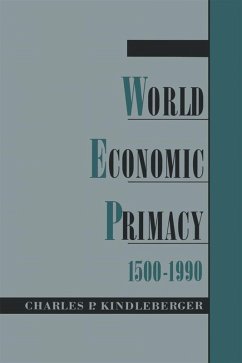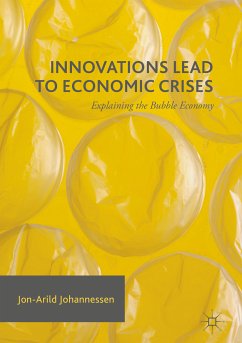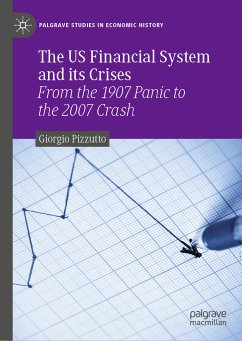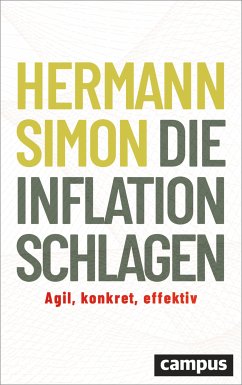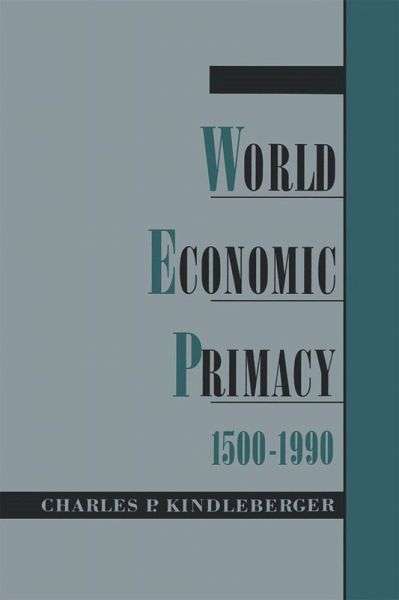
World Economic Primacy: 1500-1990 (eBook, PDF)
Versandkostenfrei!
Sofort per Download lieferbar
44,95 €
inkl. MwSt.
Weitere Ausgaben:

PAYBACK Punkte
22 °P sammeln!
Charles Kindleberger's World Economic Primacy: 1500-1990 is a work of rare ambition and scope from one of our most respected economic historians. Extending over broad ranges of both history and geography, the work considers what it is that enables countries to achieve, at some period in their history, economic superiority over other countries, and what it is that makes them decline. Kindleberger begins with the Italian city-states in the fourteenth century, and traces the changing evolution of world economic primacy as it moves to Portugal and Spain, to the Low countries, to Great Britain, and...
Charles Kindleberger's World Economic Primacy: 1500-1990 is a work of rare ambition and scope from one of our most respected economic historians. Extending over broad ranges of both history and geography, the work considers what it is that enables countries to achieve, at some period in their history, economic superiority over other countries, and what it is that makes them decline. Kindleberger begins with the Italian city-states in the fourteenth century, and traces the changing evolution of world economic primacy as it moves to Portugal and Spain, to the Low countries, to Great Britain, and to the United States, addressing the question of alleged U.S. decline. Additional chapters treat France as a perennial challenger, Germany which has twice aggressively sought superiority, and Japan, which may or may not become a candidate for the role of "number one." Kindleberger suggests that the economic vitality of a given country goes through a trajectory that can usefully (thought not precisely) be compared to a human life cycle. Like human beings, the growth of a state can be cut off by accident or catastrophe short of old age; unlike human beings, however, economies can have a second birth. In World Economic Primacy, Kindleberger takes into account the influence of complex historical, social, and cultural factors that determine economic leadership. A brilliant overview of the position of nations in the world economy, World Economic Primacy conveys profound insights into the causes of the rise and decline of the world's economic powers, past and present.
Dieser Download kann aus rechtlichen Gründen nur mit Rechnungsadresse in A, B, BG, CY, CZ, D, DK, EW, E, FIN, F, GR, HR, H, IRL, I, LT, L, LR, M, NL, PL, P, R, S, SLO, SK ausgeliefert werden.




